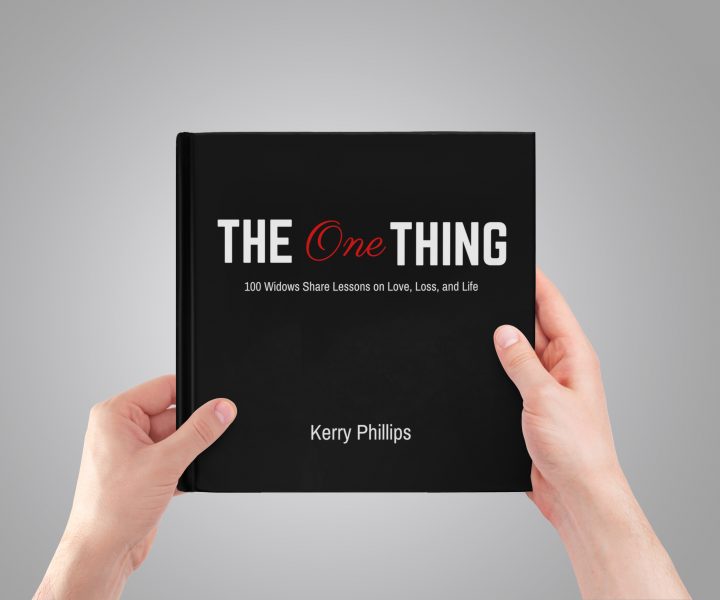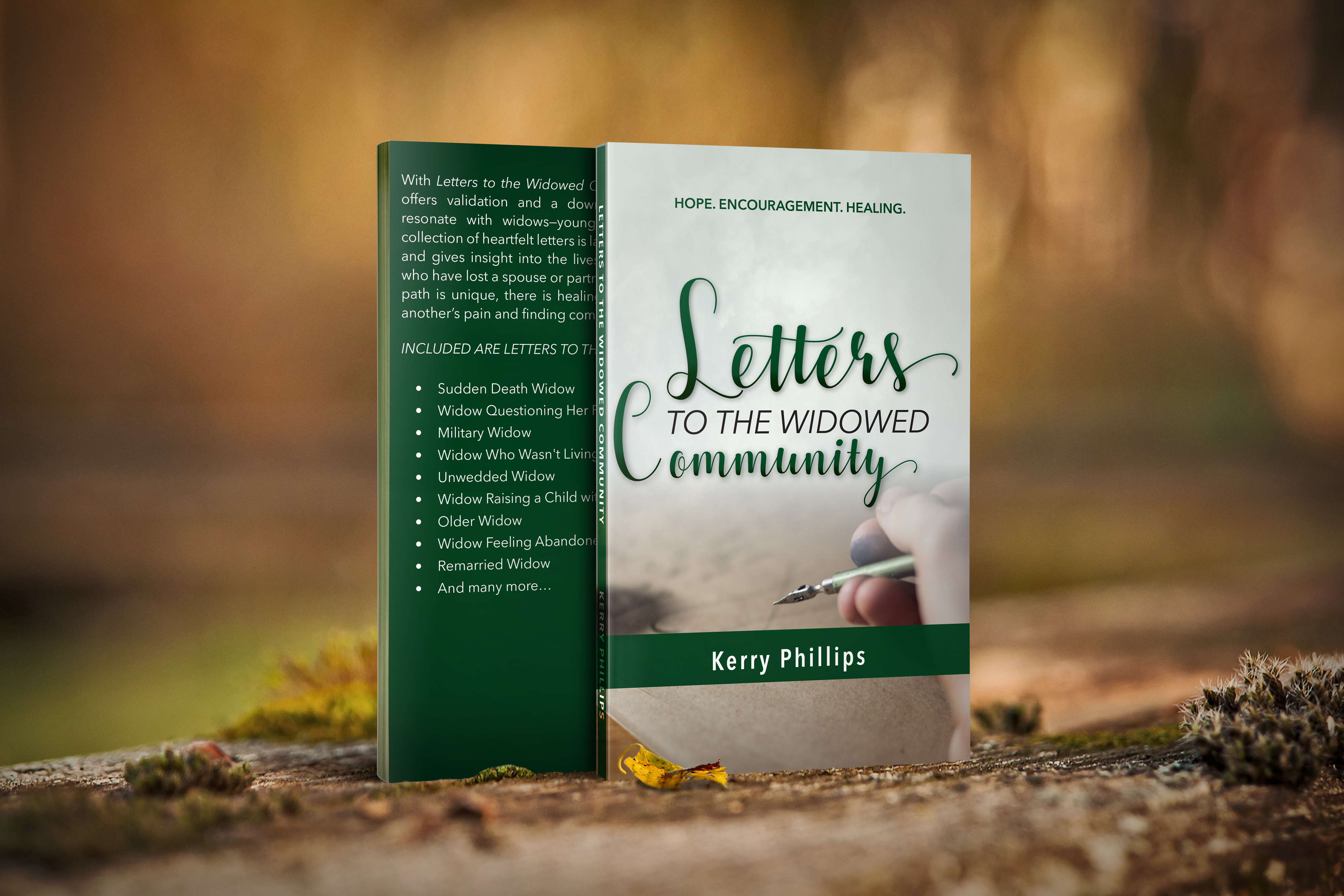I’m asked it all the time. I see it posted in support groups. I hear it asked of other widows…
When does “it” end? The crying, the hurting, the rawness, the sadness, the suicidal thoughts, the nightmare…
It’s been over six years for me and the “it” – the grief – it doesn’t ever go away. We simply learn to live with it as though it’s a chronic illness. One that offers no true cure. There is no prescription or surgery that can eliminate it. Every now and then, there is a flare-up. Sometimes it’s bearable and we sit with it and allow it to pass. Sometimes it’s a good cry in the shower. Sometimes it’s having your widow tribe circle you and love you back to health. Other times, it requires you to seek out professional help to get back on the path to healing.
ADVERTISEMENT
The “it” that tells you that you’re better off dead too…it goes away. But the “it” that makes you question if there was something you could have done to save him…that still shows up on occasion.
The “it” that causes you to break down uncontrollably when you share your story…it goes away. But the jolt to the heart when you hear your wedding song, see his favorite movie, drive by the accident scene…that never eases up.
The “it” that says you’re incapable of parenting alone…it goes away. But the “it” that points out the unfairness of your having to parent alone…that continues.
The “it” that makes you scroll by the social media statuses of happy couples and picture-perfect families…it goes away. But the “it” that makes you wonder why that’s not your story…that still lingers.
The “it” that doesn’t believe in love after loss and says you’ll never open your heart to love or companionship again…it goes away. But the ‘it” that makes you miss your husband while happily dating and/or remarried…that doesn’t go away.
The “it” that points out that you’re broken, defeated or unworthy…it goes away. But the “it” that eventually teaches you independence and boldness and a strength and resiliency you didn’t know you possessed…that will always be part of your life post-loss.
ADVERTISEMENT
The grief stays. No passage of time erases it. That’s what is at the very heart of Grief Awareness Day. Observed on August 30, it’s a day set aside to recognize that the time it takes to heal from loss doesn’t have a set course and that closure comes in many forms.
Truthfully, I have yet to meet a widow who thinks she has “closure” from her spouse’s death – in the true definition of the word. We may get to a point of acceptance and ultimately healing, but closure…no. Grief will forever be part of us. Some days it sits in the background of our lives, like a sleeping giant. Other days, it awakens and threatens to destroy all the progress we’ve made.
The sharp, stabbing pain of grief that we feel with each breath, especially once the numbness of our spouse’s death wears off, gets sanded and smoothed over time. It remains but the edges no longer cause as much damage.
Remember that while grief feels like it’s always fatal or that you’ll buckle under its weight, that’s simply not true. The grief remains, but so do you. You get to decide how you will move forward, even with your grief in tow. You, and you alone, must decide if your grief makes you a better or bitter person.
Mom to a feisty preschooler, Kerry runs a support group for young widows and widowers venturing back into the world of dating and is a contributor to Open to Hope. Her articles on widowhood and grief have been featured in HuffPost and she was recently featured in the Moments of Clarity podcast.




Perfection.
Thanks!
Hi. I need more of this. I am still in denial and grief is eating me up.
Unfortunately there is no other way to the other side of those raw emotions but to go through them. Be patient with yourself.
It is now exactly six months since i lost him. I dont think i will ever come into terms.
I have never read anythi g so true. i lost my husband, father of our child unexpectedly 2 1/2 years ago and some days feel like it did when I first lost him.
All depends on the will of almighty. Calm down. God will halp you on every moment of life
Yes!!!!! 7 almost 8 years later! It hits and when it does YIKES. Sorry for your loss.❤
It’s been 16yrs but the pain still hits like a thunderbolt choking me up and I cry. I have learnt to live yes without him,manage my issues, pay my bills take care of the kids but I think it’s unfair, I don’t deserve this hence no closure.
Nailed it!!!
Wonderful article.
Love ❤️
Thank you for writing this
Perfect. Exactly how I feel. I lost my fiancé on May 23, 2017. This article hits home!
Always on point,Kerry!
This is everything. Perfectly worded.
Thank you so much for sharing this!!! Such a great message to those going through this. 🖤🖤
Thank you for this. I lost my husband unexpectedly 8 days ago. I feel like I’m drowning every day and I’m sure the only reason I haven’t buckled is that I am alone to raise our 2 young children. I needed to hear that it does get easier to deal with the grief and loss. Thank you.
i also lost my fiance 28 august 2018 , its difficult for me and i cant take care of my children it is like end of the world to me and i feel betrayed by god.
I am so very sorry. My youngest daughter lost her husband this past August 13. August 12 we were told he would have complete recovery from his stroke. He was 46. My prayers are with you. Don’t be afraid to ask for help. My daughter started seeing a grief counselor today. You’re going to make it through this…one day at a time. Hugggs.
So sorry for your loss. My youngest daughter lost her husband in August. Today, she had her first appointment with a grief counselor. Such s painful journey, but hang in there.
Year two has been the worst. Year one was pure numbness. Then trying to stand up and get through everyday. Today reality has set on and the ‘it’ keeps sneaking up on me more than ever. It’s the new decisions we have to make without our spouse that scares the hell out me. Everyone tells me “Do what makes you happy.” Really? I don’t know what that is anymore. I’m trying to find it.
I find reading these posts validate my feelings and helps me realize I am not alone and we can get through this. Love to you all.
I am also on year 2 and it has been much worse than year 1. I was in shock and denial and now the reality has hit that he really isn’t comb home. I really needed to read this article. It gives me hope.
Absolute perfection. Five months a widow and I knowing the grief, the missing and longing for him will always be with me. Along with all the love.
It has just been 4 years for me. This article is so true. Year 2 is the very worst. Much harder than the first. This is when your numbness begins to go away and you realize he is NEVER coming back, and this loneliness is for the REST of your LIFE, and EVERY job is now YOUR job. I got stronger Year 3 and began tackling things that had been his job, I had a few accomplishments and realized I could continue to live. But the grief has become a part of me, just like a manageable chronic disease. I learn to live with it, but it often flares up and is temporarily debilitating. I have to pray for strength and guidance to keep moving forward. To say that having more birthdays “beats the alternative” does not really seem true anymore.
Yes, like you, my Year 2 was tough. The numbness wore off and I was stuck with my reality.
I’m going on year 4 and most days I’m ok then BAM! I drive past his old shop and see a man walking to his car after working all day and my heart stops because I think it might be him, then I remember :o( sometimes I think I’m broken because these moments come and you have those that haven’t lived through it telling you not to dwell on it. I have to say it but I’ve gotten stern in my response to these people, “when you have lost the other have of you, the person you spent half of your life and your entire adult life with (we met when we were 20 and his accident was 18 days shy of his 40th birthday) then you can talk to me about how to deal with waking up every day to his empty side of the bed”. Shuts them down and makes them think before speaking the next time
Exactly! They just don’t get it
Thank you. I needed this read. The 1 year anniversary is approaching in May and I feel like I’ve been on an emotional roller coaster. One day I’ll hold my head up and find the strength to get through the day. Then the next I am a puddle questioning everything. It still doesn’t feel real and I expect him to come walking through the door.
Glad it was helpful, Ronna. Some days, even 7 years later, I still expect him to call 🙁 Widowhood is indeed a rollercoaster.
Beautiful!
Thank you!
Perfectly describes how the past 11 years have been. Thank you for always being able to put our heart, thoughts, feelings, struggles, and victories in the the PERFECT words!
Thanks so much, Julie.
Nice article. I am going on 3.5yrs., pain is not as intense, but there are moments when the grief consumes you. I am a single man in my late 50’s who wanted to grow old with the wife he was so used to. God had other plans.
I totally get it. Scott. Big hugs
Excellent post. Thank you for sharing your insights!
Thank you!
I have never heard my exact feelings expressed so eloquently.
Thanks. I hope you were able to feel less alone with your thoughts
Spot on again Kerry!
Thanks, Sharon!
It’s almost 12 years and yes I have learned to enjoy life. Smile ligh and have fun! It took a while to find the new me and create a new life. But there are still times it becomes overwhelming not having him with me. I think how fortunate and blessed I was to have a good marriage. I date but often wonder if I’ll ever let myself go and find a chapter 2. For now live life and see where the road leads me.